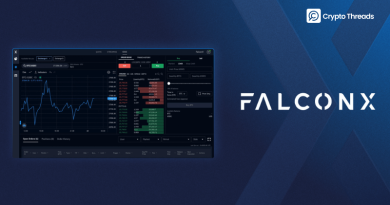Unicoin Challenges SEC’s $100M Fraud Case, Claims Agency Distorted Regulatory Filings
Key Takeaways
- Unicoin filed motion to dismiss SEC’s $100 million fraud case, claiming agency distorted company filings
- SEC sued Unicoin executives in May for allegedly misleading investors about token-backed certificates
- Company argues SEC took statements out of context and mischaracterized routine business projections as fraud
- Unicoin claims it properly disclosed risks to investors, contradicting SEC’s fraud allegations
Cryptocurrency investment platform Unicoin has mounted a vigorous defense against the Securities and Exchange Commission’s fraud allegations, claiming the federal agency deliberately distorted the company’s regulatory statements to construct its case.
In a filing submitted to a New York federal judge, Unicoin demanded dismissal of the SEC’s lawsuit, asserting the agency “plucks snippets of communications and distorts their meaning and context; treats routine financial projection and optimism as fraud; and ignores Unicoin’s sober warnings about risk.”
The company delivered particularly sharp criticism of the SEC’s approach, stating: “Most bizarrely, the SEC twists Unicoin’s disclosures in the company’s own SEC filings and improperly recasts these disclosures as proof of deception.”

Background of SEC’s Fraud Allegations
The regulatory battle began when the SEC filed suit against Unicoin, CEO Alex Konanykhin, board member Silvina Moschini, and former investment chief Alex Dominguez. The agency alleged the defendants raised $100 million by misleading investors regarding certificates that provided rights to receive Unicoin tokens and company stock.
Unicoin Demands Higher Burden of Proof
Unicoin contended that the SEC had hastily assembled its claims without meeting the requisite legal standards for securities fraud allegations. The company emphasized that fraud cases require substantially more evidence than the agency provided.
“Securities fraud demands more. It requires a false statement, made with scienter, that reasonable investors would have relied on,” the filing stated. “Where, as here, the very risks the SEC identifies were disclosed openly and repeatedly, those elements cannot be met.”
The crypto platform characterized the SEC’s complaint as a “shotgun pleading” lacking clear motive for the alleged fraudulent conduct and depending heavily on circumstantial evidence, “semantics and mischaracterizations of statements taken wholly out of context.”
SEC’s Core Allegations Against Unicoin
The Securities and Exchange Commission claimed Unicoin deceived investors by representing that billions of dollars in real-world assets, including real estate holdings and equity stakes in pre-IPO companies, would support its planned token offerings and rights certificates.
According to the regulator, the actual value of these assets represented merely a fraction of Unicoin’s public claims, and the company had fundamentally misrepresented its financial position to potential investors.
The SEC further alleged that Unicoin falsely stated it had sold over $3 billion in rights certificates when actual sales totaled only $110 million, and incorrectly marketed both tokens and certificates as SEC-registered securities.
Company’s Point-by-Point Rebuttal
Unicoin systematically challenged each aspect of the SEC’s case in its dismissal motion. Regarding allegations about misleading statements concerning token backing, the company argued the agency relied on statements “taken wholly out of context,” clarifying that executives had described the company itself as asset-backed, not specifically the forthcoming tokens.
When addressing instances where executives did reference asset-backed tokens, Unicoin maintained that “at no point did any Defendant claim that unicoins would function as a fully collateralized investment.”
The company emphasized a crucial timeline issue: the tokens referenced in the SEC’s complaint had not yet been created. Unicoin argued the agency was attempting to prosecute “forward-looking expressions of optimism” about products still in development.

Impact of SEC Action on Business Operations
Unicoin revealed that the SEC’s lawsuit had effectively prevented the company from minting its planned tokens and acquiring the assets intended to back them. The company noted the irony that the regulatory action sought to hold it liable “for failing to create tokens that are fully collateralized by real-world assets” while simultaneously blocking its ability to execute that very plan.
The filing also addressed confusion regarding real estate valuations, explaining that the SEC had incorrectly conflated deal values with actual property values for transactions still pending completion.
Legal Resolution Sought
Unicoin requested the federal court dismiss the SEC’s lawsuit with prejudice, a ruling that would permanently prevent the agency from refiling similar complaints based on the same allegations.
The case represents another significant confrontation between cryptocurrency companies and federal regulators as the industry continues to navigate evolving regulatory frameworks and enforcement actions.



